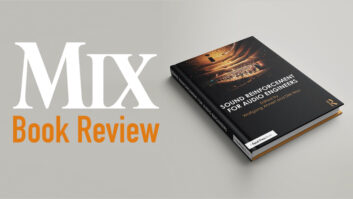There’s no doubting Nile Rodgers’ impressive place in modern pop history, but his new autobiography, Le Freak: An Upside Down Story of Family, Disco, and Destiny (Spiegel & Grau) makes a strong case anyway.

As the guitarist, co-songwriter and co-producer of Disco giants Chic, he created some of the 1970’s defining hits—“Le Freak,” “Good Times” and the eternally omnipresent “We Are Family.” In the 1980s, he left an even greater stamp as that decade’s go-to pop producer, working with (deep breath here) Madonna, Diana Ross, Eric Clapton, Depeche Mode, INXS, David Bowie, Duran Duran, Mick Jagger, Thompson Twins, Prince, Peter Gabriel, Robert Plant, Rod Stewart, the B-52s, and many, many more. In short, for the better part of 15 years, if you heard a pop song with a demanding, swaggering beat, either it was produced by Nile Rodgers or someone emulating his style.
While accomplishing all that, Rodgers was, as he notes, a true improbability: a hardcore junkie who was also a workaholic. Much of the book recounts his exploits in the drug-fueled days of Disco, and his subsequent highs (of all sorts) and lows in the go-go Reagan Era. Given his wildly chaotic childhood as the son of an interracial couple who were both heroin addicts, perhaps it was inevitable. By the time he became a teenager, he’d already talked his father off a ledge, started sniffing glue at 11, and been shuttled between an endless array of family and friends on both coasts [Here’s hoping the paperback edition comes with a family-tree diagram—seriously].
By the time he hit the charts in his early 20s, Rodgers had already jammed with Hendrix and created the ultimate Disco band, Chic, inspired by both Roxy Music (copping the use of sleek Euro branding as an image) and Kiss (nicking the idea of a faceless band, thus allowing the music to be the star). At the same time, he was finding his production legs with musical partner Bernard Edwards, and the pair quickly discovered their loosely defined formula for writing hits:
“…We’d serendipitously created a production technique that would be the foundation for every project we’d do until our last breath. We called it DHM, or Deep Hidden Meaning. Our golden rule was that all our songs had to have this ingredient. In short, it meant understanding the song’s DNA and seeing it from many angles. Art is subjective, but if we knew what we were talking about, then we could relay it to others in various disguises while maintaining its essential truth.”
Later he adds,
There was a method to our madness: We felt that audiences would be more receptive to multi-level messages, just as long as they liked the groove. We also loved showing the essence of our grooves, by breaking down. Chic lived to break down. We used to have an inside joke between us that went, “A song is just an excuse to go to the chorus, and the chorus is just an excuse to go to the breakdown.” It took the record business a bit longer to pick up on the joke. But eventually they got it.”
Once Disco died—Rodgers makes it clear that he took the Disco Sucks movement very personally—it looked like his career was over until a chance encounter led to his producing David Bowie’s comeback album, Let’s Dance. Here, Rodgers put on the producer’s hat for good, learning much in the process:
I’ve always believed that a producer’s job is a service job. I don’t get paid to give you what I want; I get paid to give you what you want. Even if I have to show you what you want, because you don’t always know that you want it. David’s directive was clear and he was not interested in doing Scary Monsters 2 (no offense to Tony Visconti). He wanted to make hits. The professional producer in me was like the Terminator. I would not stop until my mission was completed.
Soon he reveals more keys to his production style, such as being unafraid to rearrange charts and songs as needed on the spot, and keeping an upbeat vibe in the studio:
David quickly got down with the reshaping of his song [Let’s Dance]. We had a lot of fun and laughter in that Swiss studio with those terrific musicians. Laughter is the key to my sessions—[I am] the unconditionally loving parent in the room.”
The resulting album was the highest selling of Bowie’s career, and propelled Rodgers into the top of the studio game. While he was one of the kings of Eighties production, however, he rarely gives insights into how it felt to work with so many talented people or create their signature hits, though to be fair, the creation of Madonna’s Like A Virgin album gets a fair amount of space. Otherwise, most of the story is just that—story, with a lot of “I went here, and worked with that person” glossing. Playing in the house band of Live Aid—which he terms a “huge moment in my life”—gets four paragraphs, most of which are a list of acts on the bill. What the experience was like and how did he feel? We’re left having to guess.
Of course, given the copious amounts of cocaine running through Rodgers’ system in those days, as he recounts in detail time and time again, it’s probably a miracle that he can recall Live Aid at all. And that kind of lifestyle caught up with him soon enough; in Le Freak, drug-addled blackouts and hallucinations start making their own jaw-dropping appearances soon after.
A fascinating, and often humbly frank and honest, account of his own life, Rodgers’ Le Freak is easily the rock and roll must-read of the fall. While PSN readers may come to it for the production tips, the life lessons that are shared will resonate and remain with you just as long.
Le Freak (on Amazon)
http://amzn.to/v1XeBF







